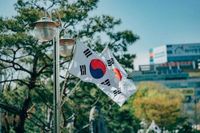The U.S. Department of Energy (DOE) has recently placed South Korea on its sensitive country list, amid rising tensions concerning North Korea's nuclear ambitions. Starting from April 15, 2025, South Korea joins the ranks of other nations considered sensitive, including China, Taiwan, Israel, Russia, Iran, and North Korea. This decision has raised eyebrows, as it suggests potential risks associated with South Korea's scientific and technological sectors.
Although the DOE has yet to elaborate on the specific reasons behind South Korea's designation, officials stressed there are presently no new restrictions hindering bilateral scientific and technological collaboration between the two countries. This assurance provides some comfort amid concerns about security obligations and the changing geopolitical dynamics on the Korean Peninsula.
President Yoon Suk Yeol has been vocal about his administration's contemplation of establishing a nuclear weapons program, citing it as necessary for countering North Korea’s burgeoning arsenal. During discussions surrounding the matter, Yoon reiterated South Korea's commitment to the Non-Proliferation Treaty (NPT), which it reaffirmed during negotiations with the previous Biden administration. This commitment was intended to secure greater transparency concerning U.S. nuclear deterrence strategies within the region.
Despite this commitment, the public dialogue concerning the feasibility of South Korea pursuing its own nuclear capabilities continues to evolve. Foreign Minister Cho Tae-yul recently acknowledged the nuclear option remains "on the table," attributing this to the shifting international environment, which necessitates careful consideration of all possibilities.
Daryl Kimball, the Executive Director of the Arms Control Association, has expressed concerns about South Korea's current rhetoric indicating it might signify broader proliferation risks. He views the DOE's designation of South Korea as necessary for addressing concerns about its potential nuclear ambitions. Kimball articulated doubts on whether South Korea might now seek approval from the U.S. for activities like uranium enrichment or reprocessing of used fuel—both deemed integral for developing nuclear weapons.
Compounding uncertainties, officials from Seoul have noted the absence of formal communication from the U.S. government about the sensitive designation. The South Korean Ministry of Foreign Affairs conveyed its dissatisfaction over having learned about the situation through informal channels rather than direct communication from Washington.
“The designation does not result in new restrictions,” Yun mentioned during his address to the American Chamber of Commerce, signaling he was trying to ease concerns about the designation. He reinforced the notion this designation is confined to the DOE’s facilities and does not affect the comprehensive defense cooperation relationship enjoyed by both countries.
Yun also revealed insights from U.S. officials who indicated South Korea's watchlist status stems from inaccuracies related to laboratory data. This commentary suggests the designation could be more procedural than substantive, leaving room for interpretation among stakeholders within the alliance.
These developments occur against the backdrop of South Korea's fortified stance on national defense amid growing concerns over North Korea's nuclear capabilities. While North Korea's intentions remain ambiguous, its aggressive military posturing and advancements present continuous security challenges for South Korea and its allies.
From Seoul's perspective, the government must navigate these geopolitical waters carefully. South Korea’s proactive dialogue about its defense posture contrasts sharply with its previously unwavering stance against developing nuclear weapons. This evolution indicates how closely intertwined South Korean defense strategies are with its diplomatic relationships—particularly with the United States.
Rather than viewing its placement on the sensitive country list as primarily negative, South Korean officials might interpret it as reflective of the increasing complexity and scrutiny surrounding regional security arrangements. Kyiv has borne witness to how quickly circumstances can change, highlighting the need for countries to adapt their defense strategies to meet current realities.
Looking forward, South Korea continues to reaffirm its collaboration with the U.S. to promote joint interests. This collaboration, especially with respect to scientific and technological development, remains pivotal as both nations confront complex security environments and navigate multilayered diplomatic challenges.
The international community will watch closely how this designation will influence U.S.-South Korea relations going forward, especially concerning defense policy and regional stability. Decision-makers should remain cognizant of the delicate balance of power as they advance their strategic interests, ensuring mutual security, trade, and scientific collaborations continue to thrive amid shifting geopolitical landscapes.




